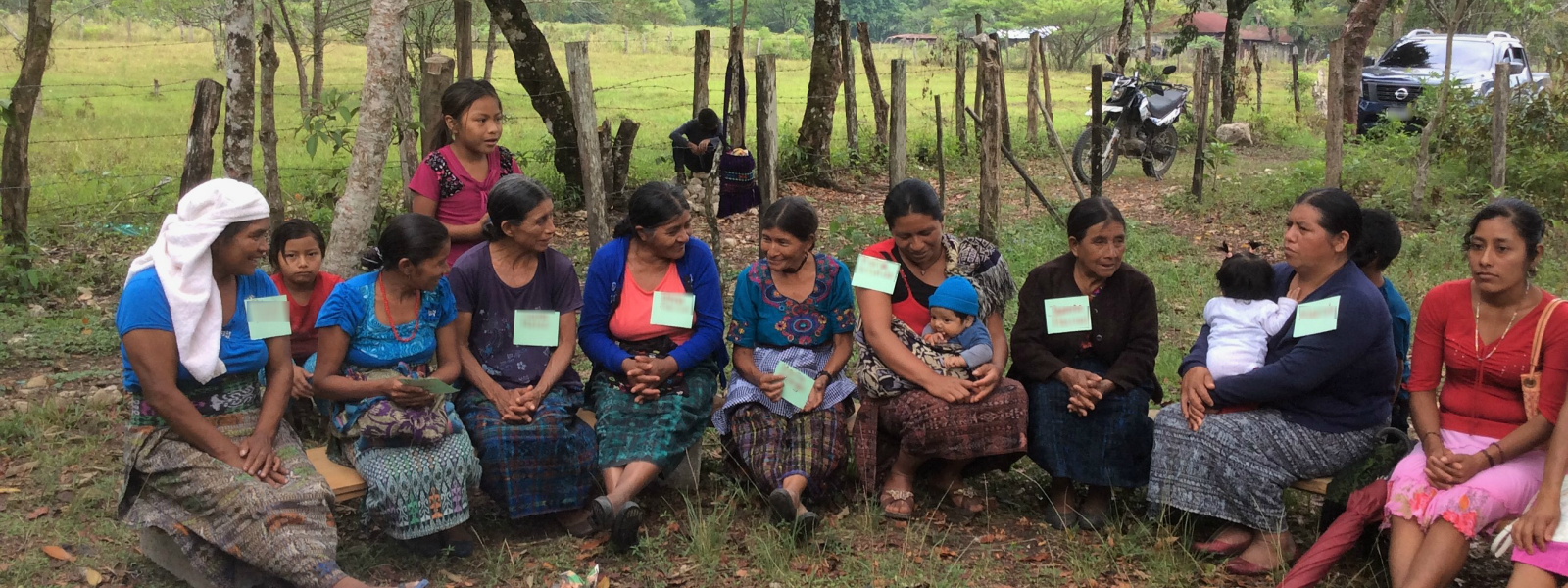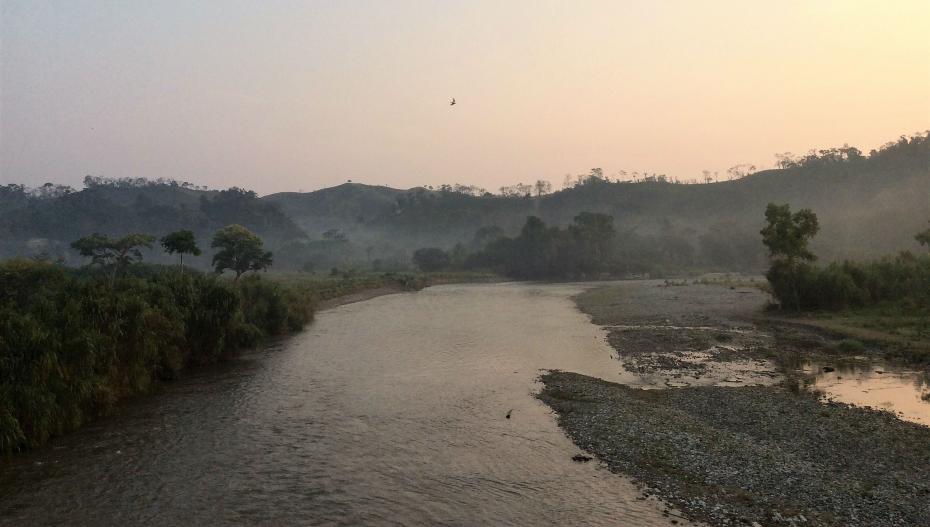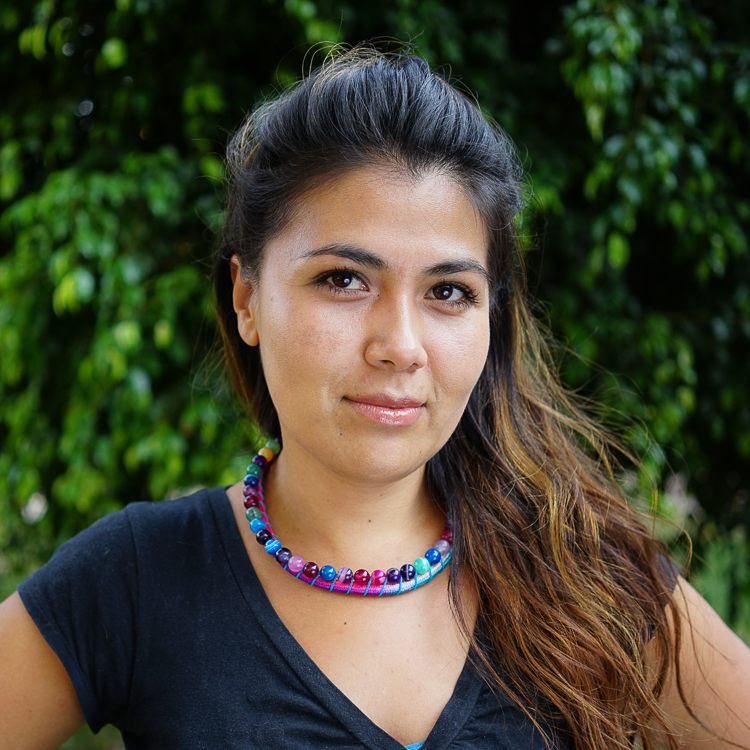
The women defending Guatemala’s rivers from large dams
Photo: Liliana Ávila / AIDA.When Maria gets up each morning, the first thing she does is open the tap in her house to see if there’s any water. If there is, she prepares coffee and, within a few hours, food for her family.
Her house is alive with plants and animals. Dogs, cats and chickens surround her as she lights the wood stove, carrying her young son on her back.
Maria lives in Ixquisis, a region of northwestern Guatemala near the Mexican border, in the department of Huehuetenango. There, water springs from the earth and large rivers like the Pojom and the Negro flow through the mountains.
For Maria, the river is a special place. There, she meets with other women and washes clothes, a traditional activity for women in her community, most of whom are indigenous. Each afternoon, as the water flows steadily downstream, they talk about their families, their to-do lists, their joys and their worries.
Last month, Maria joined with the other women of Ixquisis to speak about the threats the dams pose to their way of life. They were part of a workshop AIDA organized in collaboration with Protection International and the International Platform Against Impunity.
Maria’s life has changed a lot since they started building the Pojom II and San Andrés dams, and she’s been losing sleep.
Before the construction of the dams began, Maria used to fish. By submerging a basket in the river, she gathered—as if by magic—snails, shrimp and small fish. These are riches the river no longer provides.
Instead, the once pristine river has become filled with garbage, rubble and other debris. The workers use its water to wash cars and machinery.

“One day we will run out of water and we won’t be able to live,” Maria said, echoing the primary fear of the women of Ixquisis. “Our children will suffer.”
Their fear is well founded. Many families like Maria’s already suffer from stomach and skin diseases that they associate with water pollution.
Before the workshop, the women of Ixquisis hadn’t had the opportunity to speak publicly about the importance of water and the rivers in their lives. They hadn’t been able to explain how their rivers had changed since the dams’ construction began. They had also never been provided with information about the projects.
But even without knowing the details of the dams, Maria and her neighbors understood that the water in their homes no longer arrived as cleanly or as regularly as before.
Time and again, they have peacefully expressed their opposition to the dams. But their voices have been stigmatized and shaken by fear of reprisal.
Before Maria walked calmly through her community, even at night. She now leaves the house in fear.
But the people of Ixquisis have the support of people and organizations that work to protect the environment and human rights. The international organization Front Line Defenders, for example, recently awarded them the 2018 Award for Human Rights Defenders at Risk.
One day after the women’s workshop, we organized a second meeting attended by the men of the region. The lack of water has affected their main subsistence activity: the cultivation of bananas, cardamom, vegetables and other products they take to market. Because their harvests have decreased, they must now work more hours to obtain the same profit.
I learned a lot from Maria. Her strength, as well as that of all the residents of Ixquisis, comes from her respect for nature and all it offers them.
I share that feeling and channel it into my work as an AIDA attorney, legally advising the men and women of Ixquisis on how to defend their territory.
I work so that water will continue to flow from their taps, and so that they can one day walk again without fear, in search of a healthier future for their children.
Liliana Ávila

Liliana A. Ávila is the Director of AIDA's Human Rights and Environment Program. A Colombian, she works from the Bogotá office. Liliana is an attorney from the Universidad Externado de Colombia, a specialist in constitutional law, and holds a Masters in Legal Argumentation from the University of Alicante in Spain. She has experience in international human rights law and international systems for the protection of human rights. She's a professor of international law at the Universidad Externado and has worked as a legal advisor on human rights, international humanitarian law, and public health.
